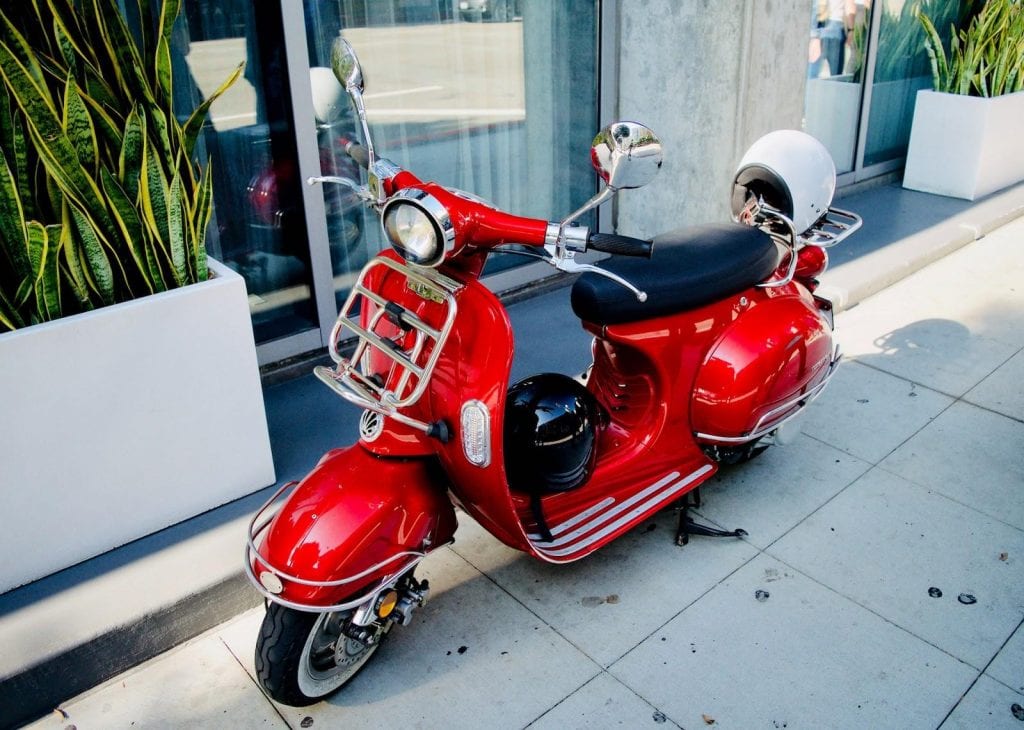Riding a motorcycle is an activity that comes with a fair amount of risk. That risk is rewarded by the unparalleled experience of tossing a leg over a bike and going for a ride, but it’s there nonetheless.
In many areas of the world, local governments have decided it’s in the rider’s (and the community’s) best interests to enact helmet laws and enforce them. With helmets being such an important part of motorcycling in general, I thought I’d take a closer look at motorcycle helmet laws and identify some things that every rider should know.
You Should Always Wear A Helmet Regardless Of The Law
The first thing I want to touch on is the fact that you should always wear a helmet no matter what the law says. Personally, I’m a bit of an ATGATT (all the gear, all the time) fan, but if you’re not, at the very least, you should put on a helmet each and every time you get on a motorcycle.
You’ll hear people ask, “Are motorcycle helmet laws effective?” The simple fact of the matter is that motorcycle helmets save lives. The number of studies that show the effectiveness of helmets on reducing injury and death are too numerous to list here.
With that said, I will point you towards this handy list of studies compiled by the Skilled Motorcyclist Association organization, which shows how effective helmets really are.
According to the association, motorcycle helmets actually reduce the risk of death by 42 percent and head injury by 69 percent. With all of the data available to motorcyclists, the real question is why the heck would you even ride without a helmet?
Not All Helmets Will Satisfy The Law
Now that I’ve reiterated how important motorcycle helmets are to rider safety, I want to talk about the fact that not all helmets are created equal, and not all helmets are treated equally in the eyes of the law.
When you ride in the United States, for example, only helmets that have Department of Transportation (DOT) approval will satisfy the law in the states that have motorcycle helmet laws on the books. It’s worth noting that not all states have helmet laws on the books either. This means that you won’t be required by law to wear one, but I still strongly recommend that you do.
Alternatively, DOT-approved helmets are not legal in places like the UK and Australia, which call for Economic Commission for Europe (ECE)-approved motorcycle helmets.
ECE and DOT are different standards. They’re the two that matter the most in terms of helmet laws, though there are other helmet standards like Snell and Fédération Internationale de Motocyclisme (FIM) that take helmet safety even further than ECE and DOT do.
The best advice I can give here is to get a helmet that will satisfy your local laws. Look them up wherever you live. If you can’t find them, then contact the authorities to find out what type of helmet will satisfy the laws in your area. It should be an easy thing to do and will help keep you legal and safe on the road.
A Helmet Can’t Guarantee You Won’t Get Hurt In A Motorcycle Accident
A motorcycle helmet will greatly reduce the risk of death or injury due to you hitting your head in a motorcycle accident. However, it cannot guarantee that you won’t sustain a head injury. As I discussed at the beginning of this article, motorcycling comes with risks involved. Even if you wear all of the protective gear you can, there’s still a risk.
A lot can go into determining whether or not you will sustain an injury or be killed in an accident. The number of variables is endless. There’s your position on the road, your speed, the terrain and landscape around, the road surface, the other motorists on the road, and so, so much more. No helmet can protect you from every scenario.
With that said, I would say that buying a high-quality motorcycle helmet from a reputable company that is modern and up-to-date in terms of construction and features will help give you the best chance at surviving a motorcycle accident unscathed.
If you need to find yourself a good motorcycle helmet. Our sister site Web Bike World has some of the most comprehensive helmet information available anywhere in the world. The reviews you’ll find there are in-depth and thorough, and you should be able to find a helmet that satisfies your needs.
If You Do Get Hurt While Riding, Seek Advice From A Professional
One of the most common questions I get from riders is: what do you do if you’re injured as a result of a motorcycle accident? The first thing I’d say is to reach out to a motorcycle collision lawyer.
The next question I get is: what can the lawyer really do for me? That question is a lot harder to answer because just about every motorcycle accident is different. However, in many cases, having a lawyer on your side can help.
I’ll let Heidi Wickstrom of Salvi, Schostok & Pritchard P.C. explain from the point of view of a lawyer in the video below:
This is especially true with a head injury. You’ll have medical bills to pay, likely have a busted-up motorcycle to deal with, and who knows what else. You could even have repercussions for the rest of your life. Having someone there like a medical malpractice lawyer to help you understand everything and ensure you get the correct compensation can really make a difference.




